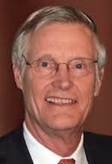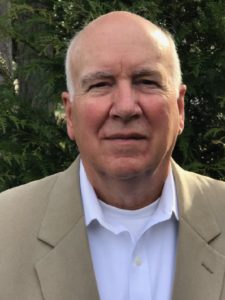Much has been written about the success of the 24/7 Sobriety Program and about the South Dakota implemenation where the concept was originally conceived and developed. Below are comments and reviews from key individuals involved in the daunting challenge of reducing DUI/DWI recidivism and other crimes impacted by substance abuse.
Bill Mickelson – Mickelson Consulting Group, President and CEO, Founder of The National 24/7 Advisory Council

Mr. Mickelson has had a long and distinguished career in law enforcement. In 1971, he joined the Minnehaha County Sheriff’s Office where he served three years. He then joined the South Dakota Highway Patrol. Mr. Mickelson rose through the ranks serving as the assistant to the Highway Patrol Superintendent until his retirement in June of 2001. Mr. Mickelson served as a special projects manager and government lobbyist. He also administered the planning and research section.
In June 2001, then Governor Bill Janklow appointed Mr. Mickelson to develop and command a computer crimes unit that investigated crimes against children. Commander Mickelson and his ICAC unit received national recognition in 2003 from the National Center for Missing and Exploited Children and Bill Gates of Microsoft for operating one of the top computer crimes units in the United States.
In 2004, South Dakota Attorney General Larry Long appointed Mr. Mickelson as an Assistant Attorney General and Special Agent for the Division of Criminal Investigation. In that capacity, Mr. Mickelson developed and managed several government projects. Most notably, Mr. Mickelson helped develop, expand, and manage the award-winning South Dakota 24/7 Sobriety Program. The 24/7 Program received the Innovations in Government Award from the National Council of State Governments in 2008. In 2009, the Institute for Behavior and Health recognized Mr. Mickelson’s efforts and awarded him the prestigious John P. McGovern Award. Mr. Mickelson retired from government service in July of 2008 and has been promoting the 24/7 Program ever since.
In 2017, Mr. Mickelson convened a number of 24/7 experts to help set out “Best Practices” for evidence based 24/7 programs. Mr Mickelson became the seminal Executive Director of the group (The National 24/7 Advisory Council) which to this day continues to be the leading organization that maintains the Best Practices living document while also collecting and disseminating current 24/7 information through its 24/7 Summit forums that are held periodically.
Mr. Mickelson currently serves as the President and CEO of Mickelson Consulting Group and provides consulting services for 24/7 Sobriety Systems, LLC.
Mr. Mickelson is known in the industry as a leading authority on evidence based 24/7 programs, and offers his assistance to jurisdictions around the world to help develop their own 24/7 programs.
Robert L. DuPont, M.D. – Institute for Behavior and Health, Inc. (IBHI), President

South Dakota’s 24/7 Sobriety Project is not just saving lives; it is reducing DUI recidivism and saving tax dollars. Jail populations have decreased in most counties across South Dakota and in the two largest counties these populations have dropped by almost 100 people on any given day. With jail costs estimated at $75 per day per person, the state is saving millions of dollars. At least part of these gains are due to the 24/7 Sobriety Project.
The 24/7 Sobriety Project is also an important response to critics who erroneously claim that it is not possible to stop DUI offenders from drinking and/or using drugs because they believe relapse is inevitable. It also belies claims that efforts need to focus exclusively on preventing DUI offenders from driving. If efforts to prevent driving without stopping drinking and drugging were possible and successful, there would not be so many repeat DUI offenses. It is the repeat DUI offenders that the 24/7 Sobriety Project identifies and positively impacts changes in behaviors.
The 24/7 Sobriety Project is continuing to evolve including plans to develop brief screening and intervention modules and formal links to addiction treatment. The comprehensive monitoring and care management model being developed for the 24/7 Sobriety Project has wide applicability within the criminal justice system, well beyond the DUI offense, because alcohol and illegal drug use are major contributors to crime and incarceration. This program demonstrates a powerful ability to stop alcohol and drug use and the criminal behavior that alcohol and drug use often lead to among arrested offenders. The program has been extended to a wide range of criminal charges related to alcohol and drug use, including domestic violence and civil abuse and neglect cases. These changes show the broad applicability of the 24/7 Sobriety Project, far beyond the original focus only on DUI offenders and alcohol use.”
Judge Larry Long – South Dakota Attorney General, 2002-2009

“The idea of the 24/7 sobriety program was born out of frustration, mine and others, that we prosecuted the same people over and over, with alcohol and drugs always involved. Clearly, we were not getting at the root of the problem in dealing with these offenders.
When we first proposed this idea, judges were skeptical and prosecutors were skeptical – both certain the result would be to fill up our jails and the court dockets for probation hearings. They became believers when the program proved to be successful for nearly everyone who entered it. It kept people out of jail and reduced the load on the court system and on law enforcement. Over time, judges began using the program for offenses other than DUI. Intoxication (through drugs or alcohol) is an exacerbating factor in many crimes. If you can remove it from the equation, many offenders won’t be a law enforcement problem.
The 24/7 program works like an electric fence works. The punishment is swift, 100% certain, but not severe. And that seems to be why the program is effective. I also think there is a therapeutic effect for offenders involved in a twice-daily program with a community of participants like themselves. They don’t feel singled out and they have others involved daily in addressing their addiction problem.
It’s been gratifying to me to hear from family members of offenders who see a real difference in their son or daughter or spouse as they become sober again and are able to sustain it over time. I believe that the 24/7 sobriety management program, which allows us to gather and analyze data related to these repeat offenders, will help us make real strides in the future in balancing punitive and treatment options that can help end the cycle and move people to permanent sobriety.”
Keith Humphreys, Ph.D. – Stanford School of Medicine

The efforts against drunken driving include checkpoints, steep fines, and ignition-locked cars. But alcohol-related road deaths have held steady for a decade-except in South Dakota. Under the state’s four-year-old 24/7 Sobriety Project, people convicted of repeated drunk-driving offenses are forced into sobriety for at least three months, during which time they submit to police-observed breath alcohol tests twice a day. No excuses are allowed. If they fail, refuse, or don’t show, sanctions begin with an immediate night in jail. Now the results are in: drunken-driving fatalities fell significantly since the adoption of the program. Statistics show that program veterans are half as likely as other DUI offenders to be arrested again.
Recently, North Dakota and Montana launched pilot programs of their own; at least two other states (and the city of London) are considering doing the same; and South Dakota is testing the idea on other offenders-domestic batterers, for example-who routinely commit crimes while intoxicated. And there’s additional good news: the program is nearly self-supporting. Offenders pay for the testing regimen, and those funds, in turn, pay for the program.
Bruce Bjork – Executive Director of The National 24/7 Advisory Council

Bruce Bjork joined the Washington State Patrol in 1970. He has worked throughout the state of Washington in a multitude of assignments. He rose through the ranks in field operations and became the Captain of the state Crime Laboratory System in 1988. Bruce held the positions of Deputy Chief of Field Operations, Deputy Chief of Investigative Services and retired in 1997 as the Assistant Chief of the Washington State Patrol.
Bruce was employed by the Department of Fish and Wildlife in 1997 as Deputy Chief and was promoted to Chief six months later. He served as Chief for fifteen years until he retired from state service in 2013. Chief Bjork has been a member of the Washington Association of Sheriffs and Police Chiefs (WASPC) for over thirty years, has served on their Executive Board, held all their elected offices, and was WASPC President in 2010.
In 2013 Bruce was hired by WASPC as the statewide 24/7 Sobriety Program Coordinator to establish and develop pilot sites for the 24/7 Sobriety Program in the state of Washington. Bruce started a consulting business in 2016 specializing in governmental services and the 24/7 sobriety program. In 2017 Bruce was a founding member of the National 24/7 Advisory Council and currently serves as the organization’s Executive Director. Bruce holds a Bachelor of Arts degree and a Master Degree in Public Administration from The Evergreen State College.
